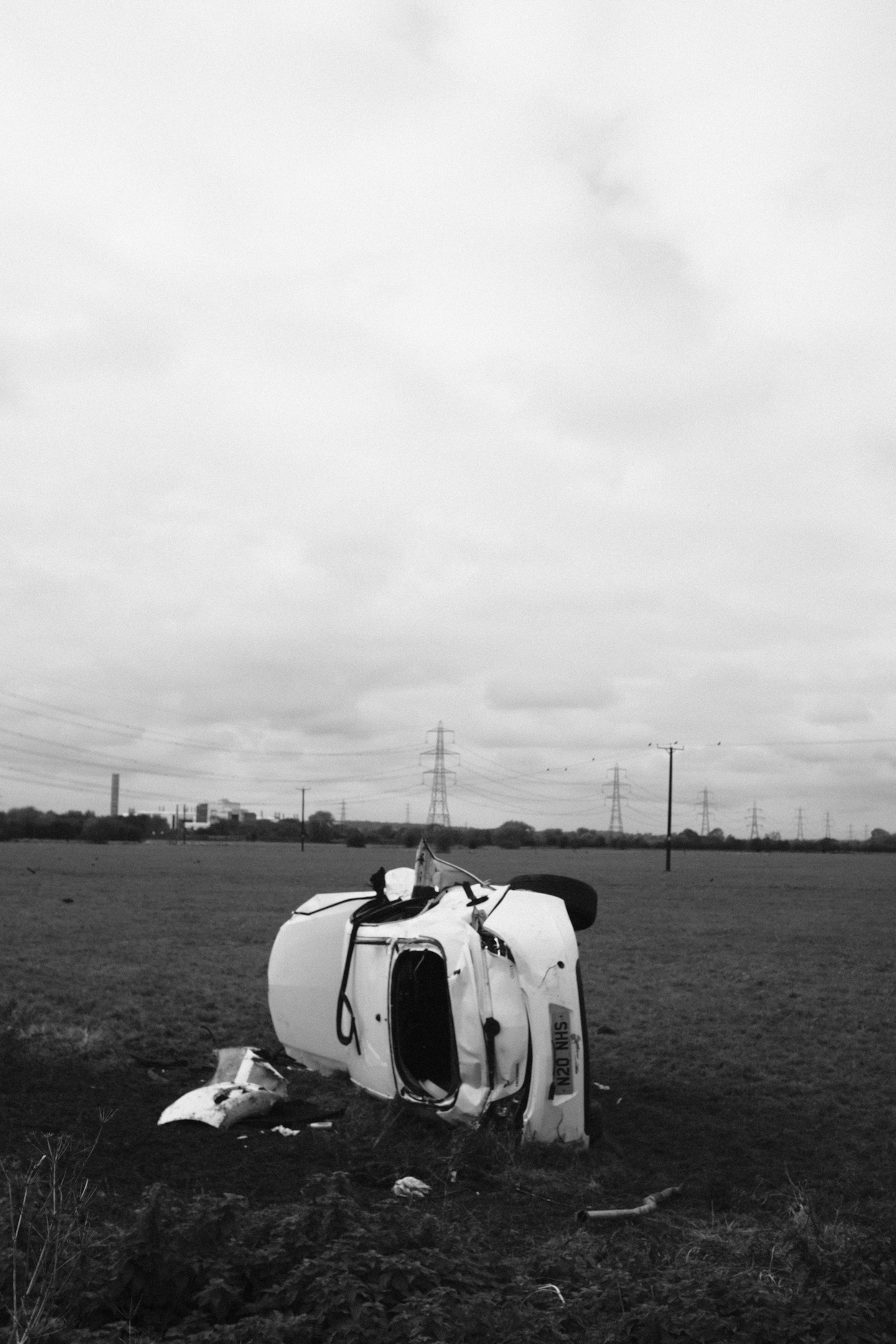Austin Intoxication Assault Attorney
Intoxication Assault, also known as DWI with Serious Bodily Injury, in Austin Tx
Intoxication Assault charges, also referred to as Driving While Intoxicated (DWI) with Serious Bodily Injury, is a significant offense in Austin, Texas. An intoxication assault charge involves a driver operating a motor vehicle while impaired by alcohol or drugs, leading to an accident that causes serious bodily injury to another individual.
The repercussions of an intoxication assault charge can be severe, with potential for heavy fines, license suspension, and imprisonment. When serious bodily injury to another person is involved, the prosecutors will often take the case much more seriously than a run-of-the-mill DWI.
If you or someone you know is facing charges related to Intoxication Assault in Austin, Texas, it’s important to seek legal advice immediately. You can speak with an experienced criminal defense attorney by filling out a contact form, or texting “consult” to 512-677-5003.
What is Intoxication Assault in Texas?
Under Texas Penal Code Section 49.07, a person commits Intoxication Assault when they operate a motor vehicle, aircraft, watercraft, or an amusement ride, or assembles a mobile amusement ride, while intoxicated, and by reason of that intoxication causes serious bodily injury to another person.
The term ‘serious bodily injury’ means injury that creates a substantial risk of death or that causes serious permanent disfigurement or protracted loss or impairment of the function of any bodily member or organ. Most commonly, a person will be charged with intoxication assault if their impaired driving was the cause of the SBI.

Intoxication Assault W Vehicle SBI Legal Consequences
In Texas, there are very serious consequences for Intoxication Assault with a Vehicle causing Serious Bodily Injury (SBI). If convicted, this third-degree felony can lead to imprisonment ranging from 2 to 10 years, not to mention time in county jail while awaiting trial.
Additionally, a fine of up to $10,000 may be imposed. It’s important to note that these are the maximum penalties and the actual sentence can vary based on the specifics of the case, including the defendant’s criminal history and the severity of the injury caused.
Further consequences may also include a lengthy probation period, mandatory alcohol education courses, community service, and a possible driver’s license suspension. Given these potential repercussions, it is vital for anyone facing such charges to seek immediate legal counsel.
What is the Definition of Intoxication in Texas?
In the State of Texas, as per Section 49.01 of the Texas Penal Code, a person is considered ‘intoxicated’ if they do not possess the normal use of mental or physical faculties due to consumption of alcohol, a controlled substance, a drug, a dangerous drug, a combination of two or more of those substances, or any other substance in the body.
Alternatively, a person is also legally intoxicated if they have an alcohol concentration of 0.08 or more. It’s important to note that in some cases, a lower BAC may still result in an intoxication charge.
What Type of Injury does Intoxication Assault Involve?
Serious bodily injury under Texas law, as defined in Section 1.07 of the Texas Penal Code, refers to any injury that causes a substantial risk of death, serious permanent disfigurement, or protracted loss or impairment of the function of a bodily member or organ.
This broad definition encompasses a wide range of injuries, from traumatic brain injuries to spinal cord injuries, severe burn injuries, and more. The determination of whether an injured person has “serious” personal injury is often made on a case-by-case basis, considering the specific circumstances of each situation.
DWI Blood Tests After a Crash Involving Serious Bodily Injury
After a motor vehicle crash involving serious bodily injuries where alcohol use is suspected, Texas law enforcement will typically secure a warrant to obtain a blood test from the suspected driver to determine Blood Alcohol Concentration (BAC). The process is as follows: law enforcement officers will first establish probable cause, which involves gathering evidence that suggests the driver may have been under the influence of alcohol. This evidence could be the driver’s behavior, the smell of alcohol, or admissions made by the driver.
Once probable cause is established, the officer will contact a judge to explain this evidence and request a warrant for a blood test. If the judge finds the evidence sufficient, they will issue the warrant. Consequently, the suspected driver is legally obligated to comply with the warrant and submit to a blood test. Refusal or resistance to the test can lead to additional penalties.
Causation in Intoxication Assault Cases
Causation is a critical component in intoxication assault that plays a significant role in determining the outcome. To establish guilt, the prosecution must prove beyond a reasonable doubt that the defendant’s intoxication was not merely coincidental but was indeed the direct cause of the serious bodily injury suffered by the victim.
This connection between the defendant’s impairment and the accident is vital as it defines the intent and recklessness of the accused party. Without it, convicting someone for intoxication assault can be challenging. Therefore, an effective defense often involves challenging causation, potentially arguing that other factors such as road conditions, mechanical failure, or actions of other drivers were the true cause of the incident.
Common Defenses for Intoxication Assault
In addition to challenging causation, defendants in intoxication assault cases may employ several strategic defenses to challenge the prosecution’s charges, beyond challenging the causation element. One of these is challenging the reliability and accuracy of BAC and Field Sobriety tests. Defendants can question the handling and storage of the samples, the calibration of the equipment used, or even the qualifications of the person administering the test.
Another common defense strategy revolves around contesting the occurrence of serious bodily injury (SBI). The prosecution must prove that an alleged victim sustained SBI as a direct result of the defendant’s alleged intoxication.
Definition of SBI often includes injury that leads to death, serious permanent disfigurement, or protracted loss or impairment of the function of a bodily member or organ. The defense may argue that the injuries do not meet the legal definition of SBI, or that they were pre-existing or caused by other factors not related to the accident.
Intoxication Assault Attorney FAQs
What happens if multiple people are injured in an intoxication assault incident?
In cases where multiple people are injured due to intoxicated driving, each injured party may press charges independently. This could result in multiple counts of intoxication assault against the accused. Each count represents a separate offense and can lead to separate penalties. It is crucial to note that the severity of the penalties often corresponds with the extent of the injuries sustained by the victims.
Can you get probation for intoxication assault in Texas?
Yes, it is possible to receive probation for intoxication assault in Texas, but it is not guaranteed. The eligibility for probation depends on the specific circumstances of the case, the defendant’s criminal history, and the severity of the injuries caused by the incident. It’s important to understand that probation, if granted, comes with stringent stipulations like mandatory alcohol education programs, community service, and regular check-ins with a probation officer. The assistance of a skilled attorney can significantly impact the possibility of receiving probation.
What if the only person injured was in the car I was driving?
Even if the only person injured in an intoxicated driving incident was a passenger in your motor vehicle, you could still face charges of intoxication assault. In Texas, the law does not distinguish between passengers, pedestrians, or other drivers; if your actions while intoxicated result in serious bodily injury to any person, you can be charged. It’s important to consult with a DWI attorney who can provide guidance based on the specific facts of your case.

Can an intoxication assault be reduced to a misdemeanor?
In some cases it is possible to avoid an intoxication assault conviction and have it reduced to a misdemeanor DWI. Whether this option is available is highly dependent on the specific circumstances of the case and the negotiation skills of your attorney.
In Texas, intoxication assault is typically classified as a third-degree felony. However, with effective legal representation, it may be possible to negotiate a plea deal that reduces the charge to a misdemeanor.
This typically requires demonstrating factors such as a lack of prior convictions, minor injuries to the victim, or favorable evidence issues in the case. However, this is by no means a guaranteed outcome and it’s crucial to consult with a knowledgeable DWI attorney who can assess the specifics of your situation.
Contact an Austin Intoxicated Assault Attorney
If you or a loved one are facing an intoxication assault charge and are in need of legal representation, please do not hesitate to reach out to us at ATX Legal.
Text “consult” to 512-677-5003 or fill out a contact form for a free consultation. We will reach out within 24 hours.